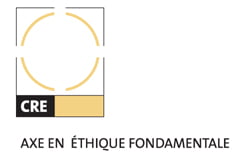
Chloë Fitzgerald
Postes occupés
| 2010-2011 | Chercheur-se postdoctoral-e, Éthique fondamentale |
Participations aux événements du CRÉ
| 28 avril 2011 | Atelier Plénier du GRIN |
|---|
Biographie
My research interests lie primarily in ethics, moral psychology and philosophy of mind, with a focus on emotions and intuitions, but I am currently building on these interests to develop projects in other areas of philosophy, particularly political philosophy and health care ethics.
As a postdoctoral researcher at CRÉUM, I worked with Christine Tappolet, among others, and participating in many of the interdisciplinary activities at the centre. I am exploring how far and in what ways an understanding of moral intuitions and moral psychology has consequences beyond the level of individual decision-making to the broader sphere of social and political philosophy. In particular, I explored how a proper understanding of moral intuitions is relevant to understanding the ethical and political implications of the concept of ‘nudge’ – a buzzword introduced by Sunstein & Thaler (2008).
My PhD at the University of Manchester was funded by the Wellcome Trust and is an account of what moral intuitions are and how we should use them. I drew on recent empirical and philosophical work to provide an accurate descriptive picture of the phenomena involved in moral intuition. I argue that one must neither fear nor revere moral intuitions, but instead approach them as part of a project of self-interpretation; they reveal the contents of what I call one’s underlying value structure. My project was motivated by two concerns: firstly, doubts about the methodology in normative ethics of using intuitions to imaginary cases to construct moral principles; secondly, problems with the conceptions of emotion and moral intuition employed in empirical moral psychology. I argue that moral intuition is not best understood as a unitary phenomenon. My broad definition of moral intuition allows it to span any or all of the phenomena involved in a suite of heterogeneous moral responses, including emotions, judgements, perceptions, memories and imaginings. What makes the suite intuitive is the presence of an emotional feeling or what I term ‘intuitive moral feelings’, which are pre-cognitive promptings to judge. I use my account of moral intuition to provide guidance on how intuitions should be used in normative ethics and to propose new avenues for empirical researchers working on intuition and emotion in moral psychology.
Contact: chloefitzgerald@hotmail.com



